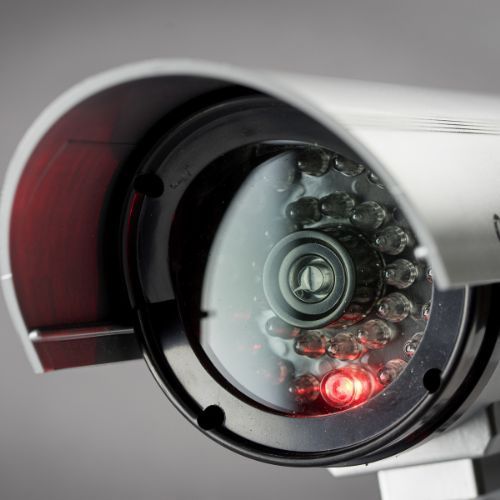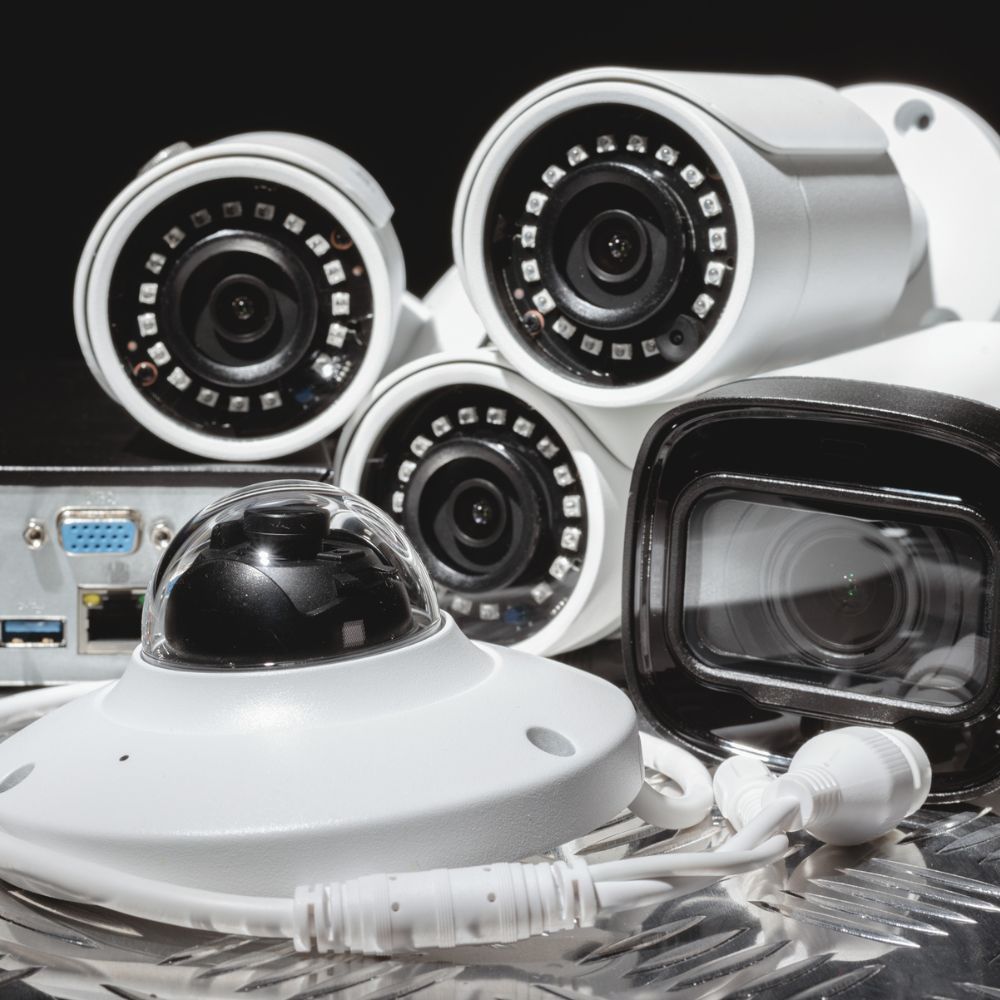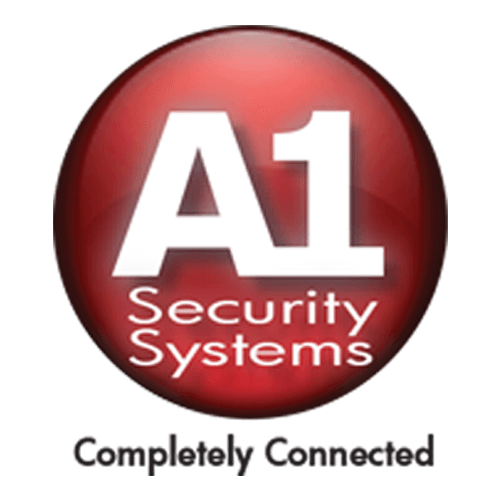How to Select the Perfect Security Camera System for your Business Needs
Running a business comes with its fair share of challenges—security shouldn't be one of them. Whether you're worried about theft, unauthorized access, or simply want to keep an eye on operations when you're away, having the right business security cameras in place makes all the difference. With so many options available, it can feel overwhelming to choose the right one. This guide will walk you through the different types of surveillance cameras you may add to your alarm system, helping you make an informed decision tailored to your business needs.
Consumer vs. Commercial Security Camera Systems
When it comes to video surveillance, the first thing to understand is the difference between consumer and professional-grade systems.
- Home Security Camera Systems: These are typically designed for homeowners and small-scale setups. They are affordable, easy to install, and often come with cloud storage and smartphone access. However, they may fall short in terms of durability and compliance with industry standards, making them less ideal for businesses that require long-term security solutions.
- Commercial Security Cameras: Built for commercial environments, these systems offer higher resolution, enhanced durability, and compliance with legal and regulatory requirements. They can also come with features like remote monitoring, on-site/cloud storage options, analytics, robust support.
If your business relies on consistent, high-quality video monitoring, investing in a commercial security camera system can help ensure your premises are protected without compromise.
Analog vs. Digital (IP) Security Cameras
Understanding the difference between analog and IP cameras is crucial when planning a surveillance system.

- Analog Cameras: Cost-effective and straightforward, these cameras are great for smaller businesses on a budget. An analog camera transmits video to a DVR, which records and stores the video footage. However, they typically offer lower resolution and limited scalability. They are also used less frequently because of the advancement in technology.
- IP (Internet Protocol) Cameras: Offering crystal-clear images, remote access, and scalability, IP cameras are the go-to choice for growing businesses. Whether you need to zoom in on a license plate in your parking lot or identify a face at your entrance, IP cameras deliver unparalleled clarity. These cameras connect to a network, allowing footage to be accessed from anywhere. One consideration to think about with IP cameras is the distance from camera to switch.
IP cameras are the preferred choice for businesses aiming for the best possible security coverage due to their flexibility and advanced features.
Choosing the Right Lens for Your Security Cameras
Selecting the right lens for your security cameras can make all the difference in surveillance quality. Whether you need a broad overview of your warehouse or a close-up view of your entrance, the right lens makes all the difference.
Fixed Lens Camera
Fixed lens cameras are a tried-and-true solution for many straightforward security needs. With a set focal length, typically 2.8mm, they offer clarity and reliability within a specific range. These cameras are perfect for monitoring areas like retail entrances, residential driveways, or office reception spaces where lighting is predictable.
Imagine running a small boutique and needing to keep an eye on your cash register. A fixed lens camera ensures this critical area is always monitored without unnecessary complexity.
Vari-Focal Lens Camera
When distance and precision matter, vari-focal lens cameras shine. With adjustable focal lengths, they’re perfect for spaces like parking lots or warehouses, where targets may be far from the camera. Whether you need a wide-angle view or a zoomed-in focus, these cameras provide the flexibility you need.
Picture a large bustling warehouse with goods coming in and out all day. A vari-focal lens camera allows you to zoom in on a specific area or zoom out to capture a general overview of the space. That same warehouse application could use a vari-focal lens camera to see a specific area of activity or parts.
Movable Camera (PTZ Camera)
Movable or Pan-Tilt-Zoom cameras (PTZ camera) offer unmatched versatility. They rotate, tilt, and zoom, covering large spaces dynamically. These cameras are invaluable in monitoring expansive areas like stadiums, airports, arenas or parking lots. PTZ cameras can also be programmed to follow movement or perform surveillance tours.
Think of a large event venue where crowd safety is paramount. PTZ cameras can monitor entrances, zoom in on suspicious activity based on motion detection, and even track objects left unattended, ensuring swift action when needed.
Each lens type serves a unique purpose, and a mix of these can provide comprehensive security coverage.
Wired vs. Wireless Security Cameras
The choice between wired and wireless cameras often comes down to installation needs and network reliability.
- Wired Cameras: Known for their reliability, wired cameras typically provide video and data across the same ethernet type cable. Video surveillance systems that have PoE (power over ethernet) ports are able to power the camera. Generally speaking wired cameras are more reliable and can deliver usable images.
- Wireless Cameras: The interesting thing to note about wireless cameras is typically they still need a power outlet close by in order to power the camera. The reason they are called wireless is typically because the video signal is transmitted wirelessly across the network. That said, a network not designed for transmitting that much video data may deliver less than ideal images.

Smart Features That Take Security to the Next Level
Today’s security cameras offer more than just recording footage—they come packed with intelligent features that make monitoring easier and more effective.
Virtual Line Cross Triggers
Virtual line cross triggers create invisible boundaries that, when crossed, activate alerts or additional cameras. This proactive feature minimizes response time and enhances security for perimeters or sensitive zones.
Example: A logistics company sets up virtual lines in its loading bay. After hours, if someone crosses these boundaries, the system sends an alert and activates cameras to capture detailed footage.
Intrusion Zones
Intrusion zones allow you to define high-risk areas within a surveillance field. If motion is detected in these zones, the system springs into action, they could trigger alarms that notify authorities. They could generate alerts to people working on site. These intrusion zones turn can turn a reactive type video surveillance system into a proactive video surveillance system.
Example: Consider a car dealership with valuable inventory outdoors. Intrusion zones protect high-value areas by triggering alarms the moment unauthorized access is detected.
Smartphone Integration
With mobile integration, modern security video surveillance systems put control at your fingertips. From receiving instant alerts to viewing live footage, your smartphone becomes a powerful tool for managing security on the go.
Example: A restaurant owner gets a midnight notification of a backdoor opening. Using their phone, they check the footage, confirm it’s an employee retrieving a forgotten item, and avoid an unnecessary alarm response.
Smart features make it easier to stay in control, giving business owners peace of mind with minimal effort.

Choosing the Best Security Camera System for Your Business
Selecting the right security camera system doesn't have to be complicated. Keep these factors in mind when making your choice:
- What are you protecting? Whether it’s expensive equipment or customer data, identifying what’s most valuable helps determine the right system.
- How large is the area? Larger spaces may need a combination of fixed and PTZ cameras for comprehensive coverage.
- What are your storage needs? Decide between local DVR/NVR storage or cloud-based options based on how long you need to retain footage.
- What’s your budget? Balance cost with features to get the best protection for your investment.
How Security Cameras Benefit Your Business Beyond Security
Beyond security, video surveillance systems can offer additional benefits, such as:
- Monitor Employee Productivity: Keep track of productivity and adherence to company policies.
- Improve Customer Experience: Observe foot traffic patterns to optimize store layouts.
- Provide Evidence in Disputes: Have clear records of incidents to resolve disputes quickly.
A well-implemented security system not only protects but also helps in making data-driven business decisions.
Conclusion
Choosing the right security camera system isn’t just about protecting your business; it’s about making informed decisions that enhance efficiency, safety, and peace of mind. Whether you’re considering wired or wireless cameras, fixed or PTZ cameras, the right setup ensures you’re covered from all angles.
At A1 Security Systems, we’re here to help you find the perfect security solution that fits your needs and budget. Contact us today for a free consultation and let’s get started on securing your business.
For more information, visit A1 Security Systems and discover how we can help you take your security to the next level.
Frequently Asked Questions
What is the difference between wired and wireless security cameras?
Wired cameras provide a stable and reliable connection with consistent video quality, while wireless cameras offer flexibility and easier installation but depend on a strong internet connection.
Can security cameras work in low-light or nighttime conditions?
Yes, many modern security cameras come equipped with infrared (IR) night vision or low-light technology to provide clear footage even in darkness.
How much storage do I need for my security camera system?
The required storage depends on a variety of factors. For instance, how long would it take you to know that an incident has occurred? In some cases, people know the incident has occurred immediately which means less retention. Another consideration on storage/retention of video data is how many cameras are part of the system?
Are professional security cameras better than consumer-grade cameras?
Professional security cameras can offer higher resolution, better durability, more flexibility and compliance with regulations. Professional security cameras typically have a service company and manufacturer that will stand behind their product.
Can I monitor my security cameras remotely?
Yes, most modern IP cameras allow remote monitoring through mobile apps or web interfaces, providing business owners with real-time access to their surveillance footage from anywhere.
A1 Security Systems is a security solutions provider that works with business owners who want to protect their property and their people. We ensure their security 24/7 so they feel safe and comforted in the knowledge that our dedicated security team has got their back. Unlike our competitors we don’t force our clients into long term contracts, and we can handle complex security requirements throughout Canada. Read more about our services on https://www.a1securitysystems.ca/

